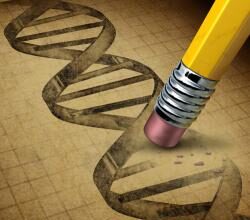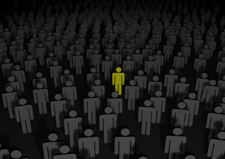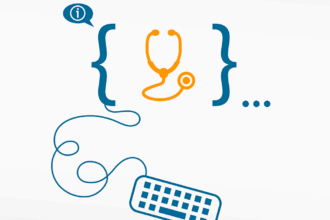The concept of the citizen scientist is new to healthcare, since medicine has historically been physician-driven. But the citizen scientist has long been an important part of many other areas of science. With access to the Internet and social networking, the contributions of citizen scientists (and the body of knowledge they both access and create) are more profound than ever.
The concept of the citizen scientist is new to healthcare, since medicine has historically been physician-driven. But the citizen scientist has long been an important part of many other areas of science. With access to the Internet and social networking, the contributions of citizen scientists (and the body of knowledge they both access and create) are more profound than ever. In healthcare, the capability for genome testing takes this citizenship to a new level, opening the gates to truly personal medicine.
At the same time, as medicine moves away from reaction to prevention, we are seeing more attention paid to mitigating disease, improving quality of care, and reducing costs. Genetic testing can provide an early indication of disease that, in turn, provides an opportunity for early intervention or prevention, and helps target the right treatment.
Thus armed with information and the power of the genome, “citizen patients” can then turn healthcare into a less passive and more participatory enterprise, says Jill Hagenkord, Chief Medical Officer of Complete Genomics. These citizens may also usher in new philanthropic avenues, she suggests. Following is a recent post by Dr. Hagenkord, reprinted with permission of Complete Genomics.*
“Dr. Leroy Hood, president of the Institute for Systems Biology, captured the essence of genomic medicine by calling it P4 Medicine – predictive, preventative, personalized, and participatory. Genomic medicine represents a shift in the way we practice medicine. To understand this change, it is helpful to compare today’s patients and doctors to those of, say, 1993. Back when Nirvana was ruling the airwaves, medicine was still mostly reactive. A patient became sick—sick enough to see a doctor—then the doctor opaquely ordered tests, made a diagnosis, and prescribed therapy while the patient passively received care. That was the old paradigm. Today, the Web has helped to demystify and democratize medicine. Many patients are now well-informed before they seek medical care and they want to actively participate in their diagnosis and therapy choices.
Genomic medicine is not passive, it is participatory. And, in many ways, it is patient-driven rather than doctor-driven. Some people are proactively using genetic services like 23andMe to determine whether they have a genetic predisposition to certain diseases, or the genetic service Counsyl to make more informed reproductive choices. People are bringing these results to their doctors, not the other way around. These peeks into the genome provide individuals with the option to take preventative measures to reduce the likelihood of getting sick in the first place and to ensure they are getting “the right drug, for the right person, at the right time,” if they do get sick. Thus, genomic medicine is also predictive, preventative, and personalized.
Is there a 5th “P” in genomic medicine? I propose that genomic medicine is also philanthropic. In the Age of Genomic Medicine, patients are driven not only by the desire to understand and best treat their own disease, but also to prevent others from suffering from that disease in the future. Just as they want to participate in their own healthcare, they want to participate in their own research. The ability to sequence a genome has outpaced the understanding of what the sequence means, and unraveling the clinical meaning of the genome will take a village.
Citizen science represents public participation in scientific research. One example of citizen science is the social networking health site, PatientsLikeMe. PatientsLikeMe allows members to input real-world data on their conditions, treatment history, side effects, hospitalizations, symptoms, disease-specific functional scores, weight, mood, quality of life, and more, on an ongoing basis. The result is a detailed longitudinal record – organized into charts and graphs – that allows patients to gain insight and to identify patterns and communicate them to their physicians. The company transparently partners with academia and pharmaceutical companies, so they not only empower those suffering from a disease but also accelerate our understanding of diseases through research and clinical trials.
Citizen scientists will likely catalyze and accelerate our understanding of the genome beyond the pace that traditional research could accomplish. Motivated, empowered patients provide a positive feedback loop for genomic research. The more genotypes and phenotypes that can be generated and correlated, the better and faster we will understand genetic contributions to a particular disease.
This is an exciting time in the history of medicine. But healthcare and sequencing providers need to set appropriate expectations about what whole genome sequencing (WGS) can and cannot do today, as well as what it may be able to tell patients and their families tomorrow. WGS is not a panacea for all that ails humankind, but a powerful new tool that can catalyze our understanding of the genome and thereby empower patients and facilitate research that may lead to improved healthcare. As individuals and a society, we can then reap the benefits of medical care that is predictive, preventative, personalized, participatory…and philanthropic.”
Is a new era of the citizen scientist/citizen patient upon us in healthcare? Have innovations like social media, the internet and genomic screening made healthcare more discriminatory? How do they impact your life science company and its product development efforts? Are healthcare practitioners helped or hindered by this apparent growth in patient power? Share your thoughts with us.
* The original post appeared May 17, 2012 on the Complete Genomics blog.







